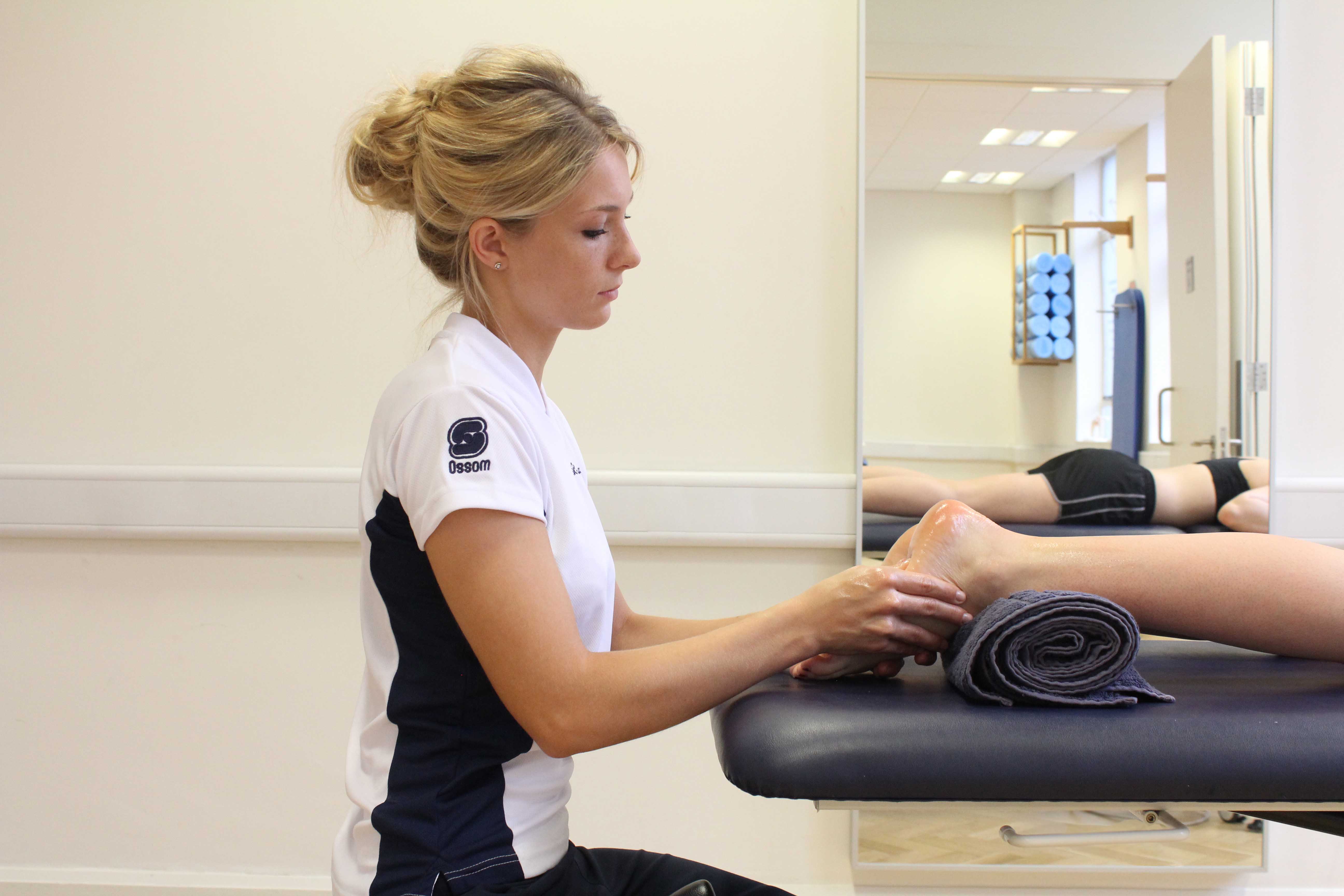What is a Morton’s neuroma?
The metatarsal bones are the five long bones of the foot. A Morton’s neuroma is an enlarged nerve in the space between the third and fourth metatarsal bones. Physiotherapy is an effective treatment for a Morton’s neuroma.
How does a Morton’s neuroma happen?
The exact cause of a Morton’s neuroma is unknown. It is caused by the compression of the nerve that runs between the third and fourth metatarsal bones. It is more common in individuals with flat feet and in women. Flat feet can increase the pressure on the nerve and cause irritation of it. It is thought that Morton’s neuroma is more common in women than men because women wear tight fitting footwear more often. High heels also cause more weight to be passed through the forefoot and they are often tight fitting across the forefoot.
 Above: Soft tissue massage of the planta fascia along the sole of the foot.
Above: Soft tissue massage of the planta fascia along the sole of the foot.What are the symptoms of a Morton’s neuroma?
Morton’s neuroma usually causes pain over the front of the foot. It is often localised to between the third and fourth toes. The pain can be an aching pain or a sharp pain that is worsened during walking or whilst wearing shoes. Increased pain is experienced when the foot is squeezed together and pressure is applied on the foot. Other symptoms can include:
What should I do if I have a Morton’s neuroma?
If you experience these symptoms you should arrange a physiotherapy appointment as soon as possible.
What shouldn’t I do if I have a Morton’s neuroma?
You should not continue to perform activities or wear shoes that increase your pain.
 Above: Mobilisations and stretches of the foot and ankle by specialised therapist
Above: Mobilisations and stretches of the foot and ankle by specialised therapistPhysiotherapy treatment for a Morton’s neuroma.
Your physiotherapist will be able to provide you with advice regarding condition and how to minimise your symptoms. Treatment will be aimed at reducing the irritation of the nerve. This can be done using numerous techniques including offloading taping and padding to redistribute metatarsal pressure. Your physiotherapist will also assess the posture of your foot and, if required, advise you on orthotic insoles for your shoes. If your foot posture was the root of your problems then this should help further redistribute metatarsal pressure. Other treatments can include:
Could there be any long-term effects from a Morton’s neuroma?
If appropriate treatment is accessed promptly, the symptoms of Morton’s neuroma can subside. If conservative management fails to relieve the pain, then Morton’s neuroma surgery may be required.
To book a physiotherapy assessment please call Physio.co.uk on 0330 088 7800 or book online.

 0330 088 7800
0330 088 7800

































